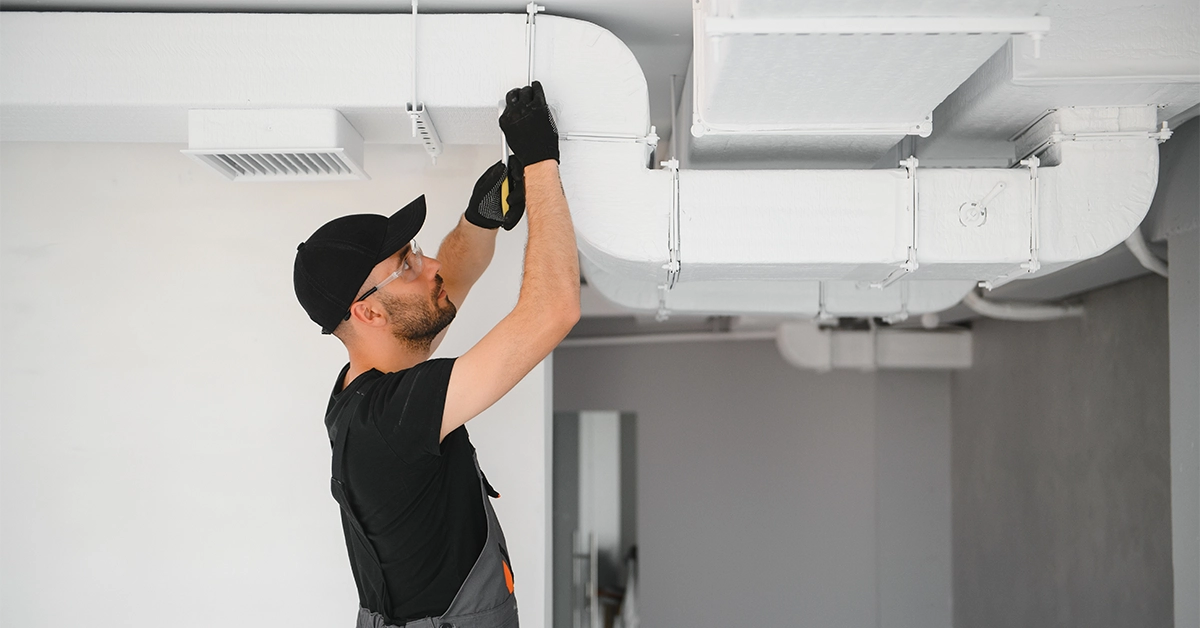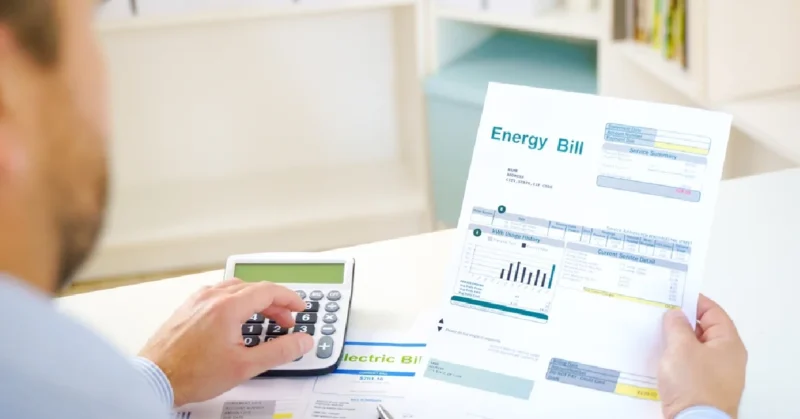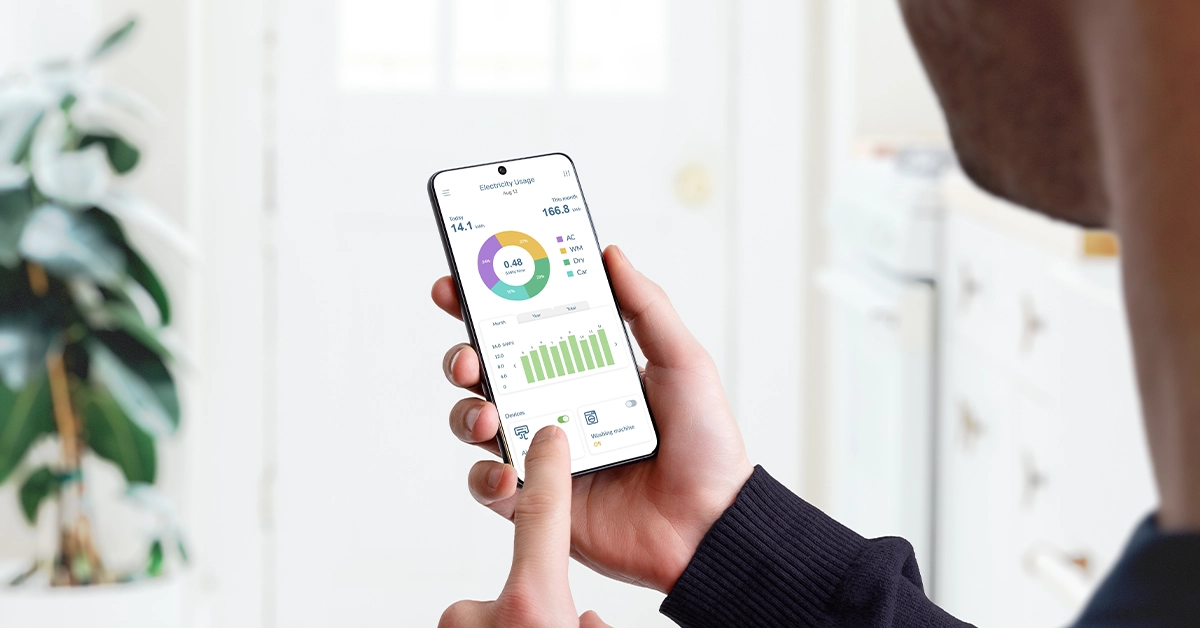In Dubai’s hot climate, electricity usage is naturally higher. But if your DEWA bill has spiked recently, it may be due to more than just the summer heat. Rising tariffs, increased appliance usage or inefficient consumption habits are a few of the causes why your electricity bill is going up.
Here, we will highlight the top reasons behind high electricity bills in Dubai and how some smart ways can help lower your bill.
Common Causes of High Electricity Bills in Dubai
High electricity bills in Dubai are often caused by heavy air conditioning use, which can account for 70% of home energy consumption. This is especially true when the thermostats are too low, the AC units are not maintained, or the insulation is poor. DEWA helps tackle this with tools like the Smart Living dashboard, Consumption Assessment Tool, Smart Response service, and EV Green Charger network to reduce household energy loads.

1. Inefficient Air Conditioning Use
Homes in Dubai account for up to 70% of total electricity consumption. This is particularly during the peak summer months (May to September). When AC units are not serviced regularly, filters clogged with dust can restrict airflow and force the system to work harder.
Contributing Factors
- Thermostat is set below 22°C.
- Poor insulation or leaky windows.
- Obstructed AC vents.
- Usage of older, low-efficiency AC models.
Solution
- Set your thermostat to 24°C.
- Use ceiling fans to improve airflow.
- Schedule professional AC maintenance twice a year.
- Seal window gaps and use thermal curtains.
2. Standby Power Consumption
Devices that remain plugged in—even when not in use—draw phantom energy. This includes TV screens, routers, microwaves, and gaming consoles. Over time, this background consumption builds up and adds noticeably to your DEWA bill.
Solution
- Use smart power strips with automatic shut-off.
- Unplug unused devices when travelling.
- Activate power-saving modes on electronics.
3. Outdated Appliances With Low Energy Ratings

Dubai Municipality mandates energy-efficient labelling on all major appliances. If your refrigerator, washing machine, or oven is over a decade old, it may fall under a lower efficiency category, leading to excessive daily energy use.
Solution
- Upgrade to appliances rated 4-star or above.
- Check energy labels when purchasing any new unit.
- Prioritise inverter-based technology for ACs and fridges.
5. Increased Household Occupancy or Activities
Another often-overlooked factor is a change in household behaviour. For instance, extended work-from-home arrangements, frequent cooking or hosting guests. This leads to higher use of lighting, cooling and kitchen appliances.
Solution:
- Monitor changes using DEWA’s Smart Living dashboard.
- Set schedules for non-essential appliances.
- Use natural lighting and passive ventilation whenever possible.
Use DEWA’s Tools to Diagnose and Fix Consumption Issues
DEWA has introduced several smart solutions to help residents detect and control their electricity usage. These include:
1. Smart Living Initiative
It is one of the Smart Living Initiatives by DEWA, which enables users to track and compare their consumption in real-time. Through personalised dashboards, residents can analyse monthly patterns. They can even compare usage with similar households in their neighbourhood.
2. Consumption Assessment Tool
The Consumption Assessment Tool by DEWA is a free tool to simulate your household energy use based on size, number of occupants, and appliance types. It helps uncover specific areas that may be driving high bills.
Best Use:
- Before upgrading your appliances.
- When moving into a new property.
- If your DEWA bill changes suddenly without an apparent cause.

3. Smart Response Service
If you notice sudden or unexplained increases in your bill, DEWA’s Smart Response service allows you to raise a technical issue.
Types of Requests:
- Meter faults
- Abnormal readings
- Sudden spikes without change in behaviour.
4. EV Green Charger Initiative
If you own an electric vehicle (EV), charging it at home can significantly raise your electricity usage. DEWA’s EV Green Charger network allows you to register your car and use public charging stations across Dubai. This will reduce your home energy load.
Real-Time Alerts and eBills Help You Stay Ahead
If you’ve moved into a new property, DEWA’s Smart Meters can help you monitor hourly consumption. You’ll receive alerts when usage exceeds a set limit. This allows you to correct the issue before receiving a high bill at month’s end.
Also, opting for DEWA’s paperless eBilling system helps you track usage over time and compare month-on-month increases with full transparency.
FAQs
The most common reasons include inefficient AC use, outdated appliances, phantom load from plugged-in devices, and increased home occupancy. Poor insulation and inefficient water heaters also contribute.
Dubai’s climate demands high cooling and water use, especially in summer. Combined with inefficient appliances or poor home insulation, this drives up electricity consumption.
To reduce your DEWA bill, use the Smart Living dashboard. Upgrade your appliances to higher energy ratings. Cut down on AC runtime. Also, eliminate standby power use. You can also request a DEWA smart assessment.
Rising electricity bills are often the result of overlooked daily habits and outdated home systems. In Dubai, where the climate demands high cooling and water use, knowing what causes the electricity bill to be high is the first step to fixing it.
By taking advantage of DEWA’s smart tools, tracking your real-time usage, and making targeted home upgrades, you can significantly reduce your consumption. You can even avoid unpleasant surprises on your next bill.
Other than this, you can find more reasons for high water and electricity use at the Property Finder Blog.